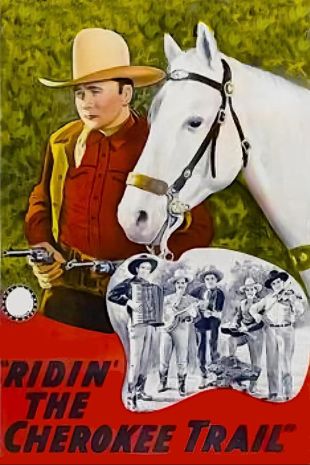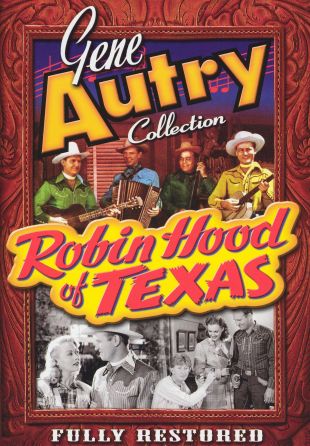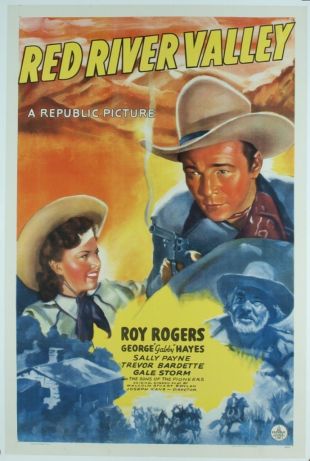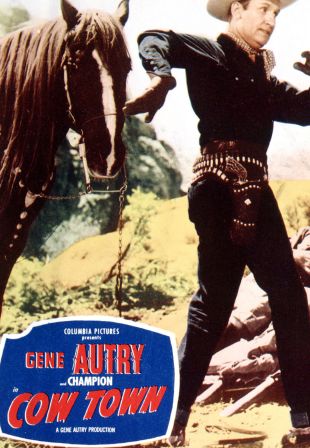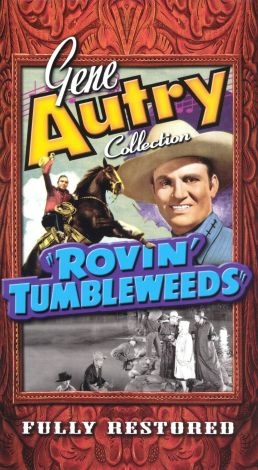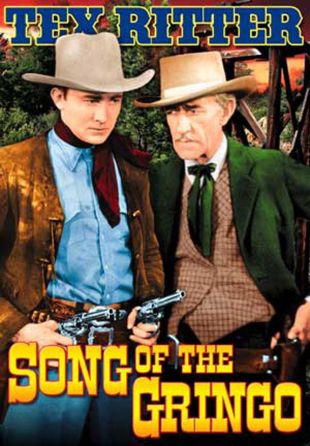
Song of the Gringo (1936)
Directed by John P. McCarthy / J.P. McCarthy
Share on
Synopsis by Hans J. Wollstein
Written by John P. McCarthy (who also directed), Robert Emmett Tansey, and, rather incongruously, former real-life outlaw Al Jennings, this musical Western marked the screen debut of Tex Ritter, a former Broadway and radio crooner. Ritter played Tex (of course), a lawman going undercover as a bandit in order to infiltrate a gang of claim jumpers. As it turns out, the leader of the gang, Evans (Ted Adams), is using the ranch of Don Esteban del Valle (Martin Garralaga) and his daughter, Dolores (Joan Woodbury), as his headquarters, dragging the innocent rancher into a scheme to take over the local mines by any means possible, including murder. In between his detective work, Ritter finds time to sing such song as "Out on the Lone Prairie," "My Sweet Chiquita," and "You Are Reality," the latter composed by leading lady Joan Woodbury, the wife of actor Henry Wilcoxon. Ritter was discovered for films by Edward F. Finney, the former promotional director for Republic Pictures, who released the Ritter series through newcomer Grand National. Despite the crowd-pleasing presence of comic sidekick Fuzzy Knight and Ritter's horse, White Flash, Song of the Gringo proved an inauspicious opener. According to Ritter himself, Finney had his star outfitted with a hideous-looking toupee; and director John P. McCarthy, a holdover from the silent era, proved an unwise choice as well. Both hairpiece and McCarthy were gone by the second instalment, Headin' for the Rio Grande (1936), replaced by Ritter's natural receeding hairline and Robert North Bradbury, yet another veteran but at least one with an eye for pacing. Ritter, who achieved perhaps his lasting fame singing "Do Not Forsake Me" over the main titles to Fred Zinneman's High Noon (1952), was the father of 1970s television star John Ritter.
Characteristics
Themes
Keywords
cowboy, deputy, land-scheme, lawman, outlaw [Western], singer
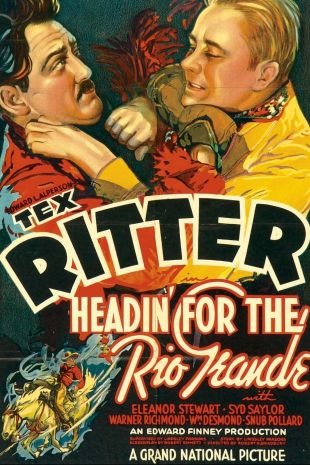
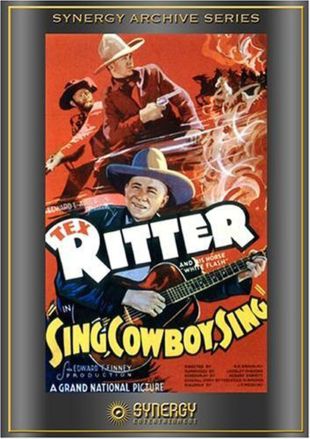
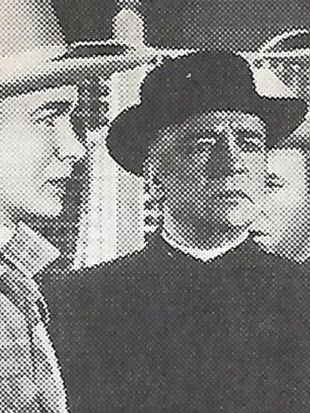

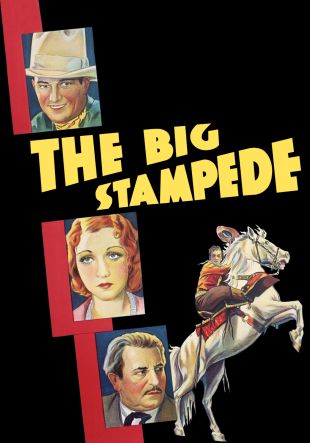
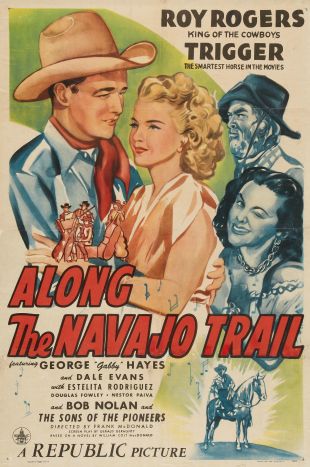
/_derived_jpg_q90_310x470_m0/RedRiverValley1936-PosterArt.jpg)
